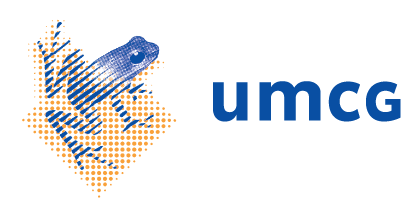Which patients can be referred?
In the Netherlands, indications for proton therapy are subdivided into ‘standard indications’ and so-called ‘model-based indications’. Patients can only be referred to proton therapy for a treatment with a curative intent.
Standard indications
Standard indications are eligible to be treated with proton therapy. These patients can be referred for proton therapy and in the Netherlands, the treatment will be reimbursed by the health insurance company.. Patients from other countries are advised to ask their health insurance company about the possibility of reimbursement.
We treat the following standard indications:
- Pediatric tumors (the UMCG Proton Therapy Center is the only center in the Netherlands where children can be treated with proton therapy)
- Skull base tumors
- Brain tumors with a favorable prognosis without the possibility of high-precision radiation therapy (stereotactic radiotherapy) (about 5-10% are eligible for a treatment with protons)
- Brain tumors in which both the brain and the entire spinal cord must be irradiated (the UMCG Proton Therapy Center is the only center in the Netherlands where the craniospinal axis can be treated with proton therapy)
Model-based indications
The model-based indications are not automatically eligible for proton therapy treatment. Referral for proton therapy is dependent on whether a (patient specific) treatment planning comparison study shows a substantial reduction in dose to healthy tissues (∆Dose), which results in a clinically relevant reduction in the probability of treatment-related complications (∆NTCP).
Currently, you can request a comparative treatment planning study for the following indications:
- Head and neck tumors (about 35% are eligible for proton treatment)
- Tumors of the breast (about 5% are eligible for proton treatment)
- Tumors of the lung and other tumors in and near the lung (about 20% are eligible for proton treatment)
- Esophageal cancer
- Lymphoma in the chest
- Seminoma
We continually strive to expand these indications.
Treatment planning comparison
Treatment planning comparison for model-based indications involves comparing the treatment plan for photon therapy, prepared by the referring institute, against a plan for proton therapy, prepared by us. The result is what we call a ∆NTCP profile, which indicates the probability of treatment-related complications for both treatment techniques. A patient is eligible for proton therapy if this ∆NTCP-profile meets the criteria of the Nationwide Proton Therapy Indication Protocol.
If the outcome of the planning comparison is POSITIVE (i.e. a clinically relevant reduction in the probability of treatment-related complications is evident), the patient can then be referred to us for proton therapy treatment. In this case, the treatment will be reimbursed by your Dutch health insurance. Patients in other countries are advised to ask their health insurance company about the possibility of reimbursement.
If the outcome of the planning comparison is NEGATIVE (i.e. no or little benefit is expected), the patient is not eligible for proton therapy treatment.

 English
English
 Nederlands
Nederlands